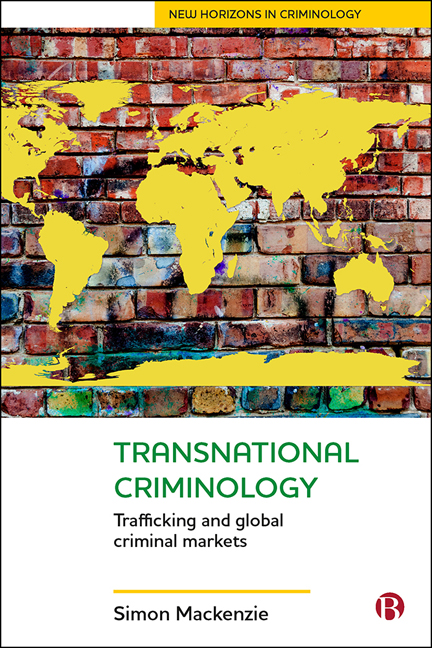Book contents
4 - Wildlife Trafficking
Published online by Cambridge University Press: 25 February 2021
Summary
The nature and extent of the harm
Wildlife trafficking as a topic of study in criminology sits in something of a position of tension. On the one hand, it is considered a ‘green crime’ and as such it is discussed as an integral part of the topic area of green criminology, which is concerned with harm to the ecosystems of the planet (for example, Ngoc and Wyatt 2013; Nurse and Wyatt 2020). On the other hand, as a form of trafficking alongside drugs, arms and so on, it is taken to be a type of organized crime, and so scholars working in that field concentrate on the ways in which it fits with that literature (for example, Lavorgna 2014). Wildlife trafficking is not alone in being treated as a topic of core interest to green criminology while also having been analysed from the perspective of another branch of criminology. For example, many green crimes are also white-collar crimes – think of corporate pollution, carbon trading scheme scams and so on – and green criminologists are generally quite explicit in their acknowledgement that their area is a hybrid meeting point of many different streams of thought, coalescing around a concern with environmental destruction. There are many effects of these ‘multiple perspectives’ issues in criminology, and for wildlife trafficking one of these is the different frameworks of harm assessment that green criminology and the criminology of organized crime bring.
From the perspective of green criminology, the harm wildlife trafficking causes should be assessed in terms of harm to animals, the environment and ecosystems. The harm to the environment and ecosystems is where the overlap with human harm is seen from the green criminological perspective. Flora and fauna are important resources for local communities around the world, and this is especially so in developing countries where they may provide a source of food, fuel (for example, in the case of timber), medicine and tourism. The removal of these community resources to feed an international trafficking trade can have considerable adverse effect on the locals who usually benefit from and co-exist with them. The longer term economic and cultural effects on local populations when the biodiversity that enriches their landscape is depleted can diminish the prospects of sustainable income through tourism, as well as the many other damaging effects that local ecosystem collapse may bring about.
- Type
- Chapter
- Information
- Transnational CriminologyTrafficking and Global Criminal Markets, pp. 55 - 70Publisher: Bristol University PressPrint publication year: 2020



